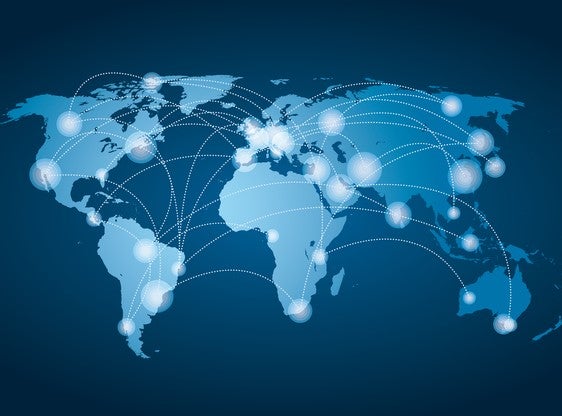
Euratex director general Dirk Vantyghem explains in a statement to support the seventh EU-Africa Business Forum, which is taking place this week: “The future of European textiles is global; there are millions of potential customers out there, eager to enjoy high quality and sustainable products, which our companies can provide.”
He adds: “The upcoming European textile strategy must embrace that global dimension; failing to do so would be a missed opportunity.”
The forum, which is co-organised by the European Commission, the African Union Commission, and EU and African business organisations features a panel covering ethical fashion and the apparel industry.
Euratex highlights that textiles is considered the second most global sector within the European economy. The EU textile and clothing industry has around 154,000 companies employing 1.47 million workers, so it is seen as an essential pillar of the local economy across many EU regions. Plus, with over EUR53bn (US$60.2bn) of exports, the EU textile and clothing industry is a global player built on globalised supply chains with fierce competition with China, US, Bangladesh, Turkey and many others. It also states that imports are peaking at EUR115bn (60% garments and 40% textiles) and every year, 22 billion pieces of textile and garment products are brought into the EU Single market.
Euratex argues that Europe’s answer to this competitive pressure must be to invest even more on quality and innovative products, made in a sustainable manner. As emerging markets evolve, the appetite for better quality, comfort and design will grow, it says. The ability and willingness to purchase technical textiles, which offer solutions to durability and improved performance, will increase, and Euratex believes this is where Europe can be successful, with, for example, EU exports to China increasing by 33% in the first 11 months of 2021.
In its vision paper on the future of European textiles and apparel, Euratex confirms its ambition to increase the global market share of the European textile industry by strengthening relations with nearby Turkey and North African countries, offering opportunities for nearshoring. It points out the African continent at large offers trade and investment opportunities, provided the business climate is stable and transparent.

US Tariffs are shifting - will you react or anticipate?
Don’t let policy changes catch you off guard. Stay proactive with real-time data and expert analysis.
By GlobalDataEuratex also suggests optimisation should increase between the UK and Switzerland, especially as Brexit has caused serious damage to bilateral trade flows (-33% export to the UK during Jan-Nov 2021) and The Mercosur Free Trade Agreement should be ratified as soon as possible.
Euratex is also calling for Europe to continue its work with the US on mutual recognition of standards and setting global environmental and social rules, and for India to make an honest proposal for the upcoming free trade negotiations, to ensure full and fair access to the Indian market. At the same time, Euratex says it needs to be protected from unfair competition, e.g. products who do not comply with stringent EU standards and procedures, and this requires more effective market surveillance.
In January Euratex claimed EU-UK trade figures confirmed Brexit has been a ‘lose-lose’ deal.



